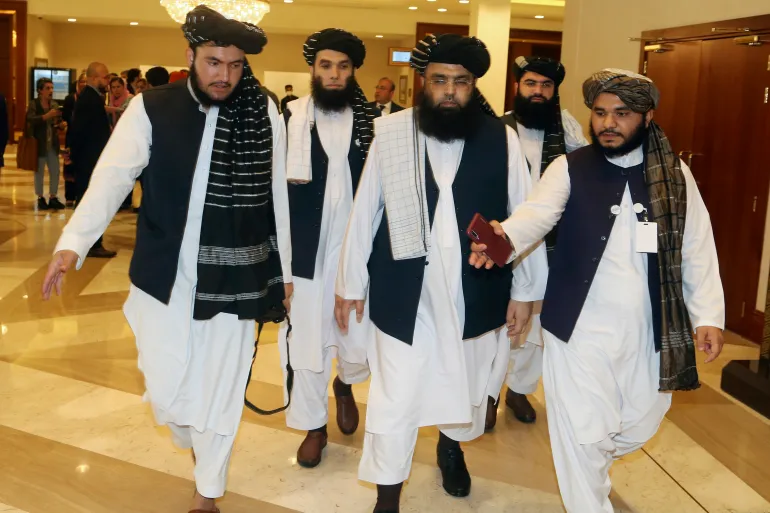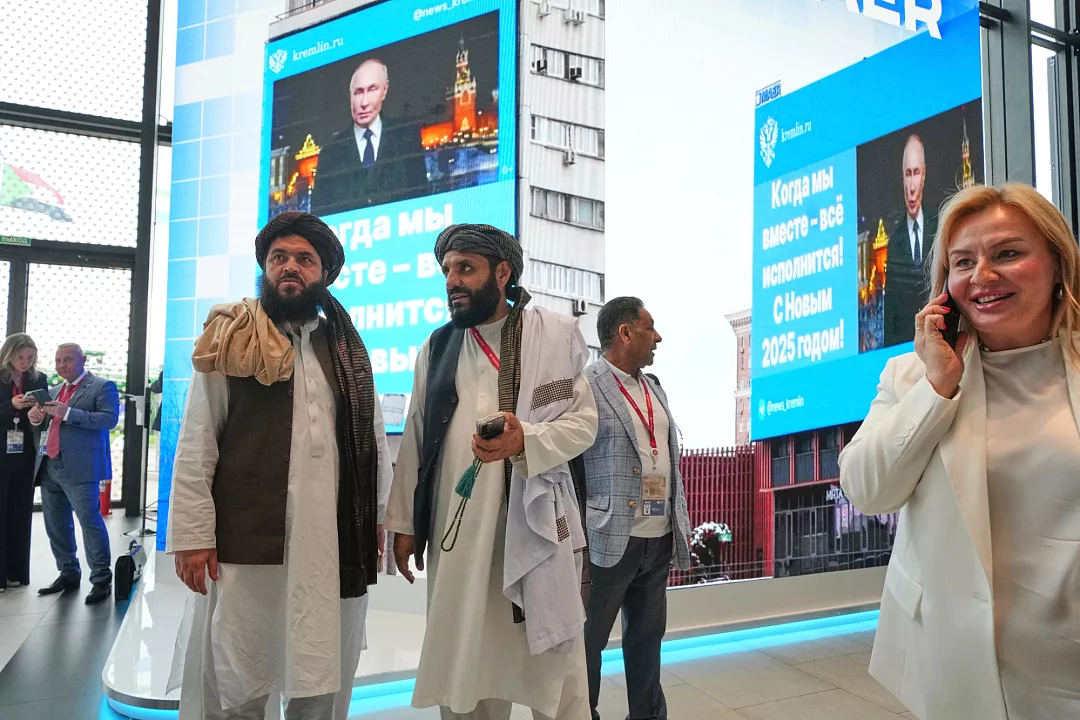India’s divergence from its whole previous stratagem of supporting Kabul is that India demanded the United Nations to place sanctions against the new Taliban leader in Afghanistan. However, with the turn of events, India now wants a silent rapprochement with the Taliban. Nonetheless, it should be kept in mind that the lifting of sanctions was also a postulate of the Doha Accord.
As the fast-paced developments in the already perplexing Afghan game take place, a recent development has been of particular interest when reports of India initiating dialogue channels with the Taliban started to emerge. More recently, Qatar’s Special Envoy for Counterterrorism and Mediation of Conflict Resolution, Mutlaq bin Majed Al Qahtani stated that Indian officials have paid a quiet visit to Qatar to meet the Taliban leadership.’ Mr Qahtani also added that the rationale behind this meeting was the Taliban’s imminent role in Afghanistan’s future.
Previously, the Indian Minister of External Affairs (MEA), S Jaishankar, had also visited Qatar on the 9th of June, where he engaged with Qatari National Security Advisor Mohamed Bin Ahmed Al Messed. Indian MEA Minister also partook in a virtual conference of the UN Security Council on Afghanistan where he stated that a legitimate and democratic process is essential for the long-term stability of Afghanistan. However, the Indian External Affairs Ministry did not confirm any talks with the Taliban. The Ministry also did not deny any development with the Taliban. An MEA statement read that India is in contact with “various stakeholders” in Afghanistan’. While on the other hand, official Taliban sources have denied any engagement with India, both through official or non-official channels.
The Indian Policy Shift
This is interesting as India followed the Afghan Process during the signing of the Doha Accords with the presence of India’s ambassador to Qatar, while the Kabul Government was not part of it.
It is certainly an important paradigm shift as India has mostly weighed in with groups that opposed the Taliban; be it the Northern Alliance, the communist governments in Afghanistan or the Afghan governments after 2001.
Taliban’s links with Pakistan in security dimensions always stood contrary to India’s designs for the region. Taliban’s congruency with groups like Lashkar e Taiba and other Jihadi outfits which operated in Kashmir signified a stark difference between India and the Taliban.
Indian Overtures in Afghanistan
Historically, India and Afghanistan have maintained close and cordial relations except for the Taliban era (1996-2001). At the time of the Russian invasion of Afghanistan; India and its intelligence agencies provided full support to the Soviet Union against the Taliban. Similarly, the events of 9/11 provided an opportunity for India to make inroads in Afghanistan, particularly after the Bonn Agreement 2001. Since then, India has followed a policy of high-level engagement with Afghanistan and the Kabul Government.
On the strategic side, Pakistan considers the Indian Military and Intelligence presence in Afghanistan as a security threat. Their alleged covert and clandestine activities erstwhile in FATA, KPK and Baluchistan may signify an underlying strategy of making Pakistan’s western borders insecure and unstable. Pakistan has often claimed that India is backing militant outfits that perpetuate terrorism in Pakistan. The mastermind of the Chinese consulate attack in Karachi, Aslam Baloch was reportedly being treated at the hospital in India. There were also reports of Aslam being killed on Afghan soil.
India’s Divergent Goals
After the US invasion, India heavily invested in Afghanistan in multiple sectors which include energy, education, infrastructure and military. Likewise, Afghanistan was also able to rebuild the state-owned Ariana airlines. This was after the removal of the Taliban Government.
The Afghan security forces received training from India. It is notable that Afghan forces are at the forefront of a battle against the Taliban.
India’s economic and strategic ingress in Afghanistan has been significant in the last two decades. However, keeping in view India’s endeavours in Iran and Indo Pacific; these events are possibly leading to a grand scheme to exert influence on Afghanistan, and for controlling routes to Central Asian Republics. Similarly, to also deny Pakistan and China any political or economic influence in Afghanistan.
India over the period of years has also offered security assistance and provided training to the Afghan National Army (ANA). India has been regularly training Afghan officers, combat and non-combat personnel at military training institutions. Indian Military trainers have also operated in Afghanistan for military training. This is apart from sending several military doctors to help ANA and Kabul government fight against the Taliban.
A Repositioning in Policy?
India has harshly clamped on Islamist outfits in Kashmir on the pretext of national security. The Bharatiya Janata Party (BJP) Government has supported multiple communal issues against minorities, especially Muslims. On the other hand, the Taliban at the Doha Accord declared their ambitions of running Afghanistan on Sharia-based concepts.
The Indian media for long has lambasted Pakistan for the frail security situation in Afghanistan. The primary blame has always been that of Pakistan providing support to the Taliban. This results in shortcomings of the Kabul Government and downplaying of Indian peacebuilding efforts in Afghanistan. Indian media has also provided a platform to nationalist officeholders in Afghanistan who have openly blamed Pakistani intelligence agencies for harpooning the Taliban.
In recent months, a newer form of consensus building in the Indian media is being observed. This new framing of rationale relies on the empiricism of the Taliban controlling the majority of mines in Afghanistan or the number of fighters Taliban forces boast. The new policy highlights the structural arrangement of the Taliban, as a part of the Indian out-reach process. Reportedly, India\’s outreach process includes Taliban leaders like; Mullah Baradar and Noorullah Noori. This entire process denotes a divorce from India’s previous policies, where it not only blamed Pakistan for supporting Taliban but Indian media also partook in fake news about the death of the Taliban head.
Conclusion
The Indian endeavours for Afghan reconstruction hold significance, inviting Afghan students to receive education or assistance in infrastructure development in Afghanistan. India might also be looking towards protecting its interests in Afghanistan; provided the investments it has carried out in the last few years.
What seems to be a complex situation is that while the future of Afghanistan remains uncertain, and other regional states like Pakistan are using their influence to bring the Taliban to the table for Intra-Afghan talks, India’s outreach to the Taliban on the other hand might embolden the rapidly advancing Taliban forces that are making gains. Meanwhile, Afghan executives who are on an official visit to the United States might feel ignored by Indian actions which can serve to provide more legitimacy to the Taliban in the region.
The Taliban, in recent days, are rapidly advancing by capturing districts. The momentum of the Taliban offensive has increased as they have captured a dozen districts. The Afghan forces are also giving up areas without a fight. In such context, Indian efforts for secret talks might hold the potential to jeopardize any peacebuilding process which might bring the Taliban and Kabul Government to a single table.
Lastly, what is evident is that India is open to dealing with all Afghan parties. India would be ready to engage with debatable stakeholders that might have congruencies with Pakistan. However, would the Taliban officially engage with India? The question is still unanswered.




![Afghan men search for victims after a Pakistani air strike hit a residential area in the Girdi Kas village, Nangarhar province on February 22, 2026. [Aimal Zahir/AFP/Getty Images]](https://southasiatimes.org/wp-content/uploads/2026/02/gettyimages-2262391441.webp)

